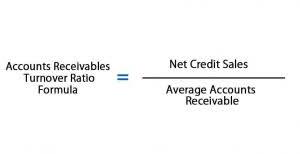
With LawPay, our sister company under AffiniPay, your firm can accept debit and credit cards, eChecks, and electronic payments while complying with ABA and IOLTA guidelines. LawPay serves more than 55,000 law firms around the U.S. and integrates seamlessly with MyCase. This makes accounts receivable management accessible for firms of all sizes, including solo practitioners and small and medium teams. Automation in law firms enables the Legal E-Billing prioritization of tasks based on urgency and deadlines. Task management tools can categorize activities into levels of importance, ensuring that high-priority assignments receive immediate attention. For instance, filing a motion before a court-imposed deadline would be flagged as critical, while drafting general correspondence could be scheduled for later.

Centralized Task Management
Clients receive email invoices and follow-ups on schedule, so you can reallocate your time to more critical tasks. Clients can also freely access their outstanding balances, payment histories, and upcoming expenses when they log into the client portal. To stay competitive in today’s legal landscape, law firms must embrace the power of unearned revenue technology, especially when it comes to billing and payments. By incorporating accounts receivable collection best practices into your standard client management process, your firm can maintain better control over its financial health.
Provide Several Ways to Pay
- By implementing smart strategies, you can transform your accounts receivable (AR).
- In this article, we’ll explore strategies and best practices to enhance your law firm’s accounts receivable processes.
- One of the biggest advantages of leveraging tech, like a legal billing and payment solution, is how they can digitally automate your end-to-end billing processes.
- Whether that means outsourcing departments entirely or partnering together, we will create a cohesive team that drives measurable improvement for your firm on every front.
- This integration eliminates the need for manual data entry, saving time and reducing errors.
Emerging legal fields, such as LegalTech, intellectual property, and regulatory compliance, present new opportunities for automation. Legal entities should be prepared to adapt automation capabilities to these evolving practice areas. These examples showcase the diversity of tools available for legal workflow automation, catering to different needs within the legal industry.

II. Sorting and Tagging Features

This prioritization helps legal teams allocate their time efficiently and focus on the most pressing matters. Complex billing arrangements, like contingency fees or tiered pricing structures, can leave clients confused and hesitant to pay. Clearly outline the fee structure in your engagement agreement, and provide detailed invoices that show how the final amount is calculated. By demystifying the billing process, you build trust and encourage timely payments. Consider offering scheduled payment plans for clients with a history of late law firm accounts receivable management payments. These plans allow clients to spread their legal fees over a set period, ensuring a more predictable and consistent cash flow for your firm.
Streamline Your Intake Process for Efficient Collections
- Designed with legal professionals in mind, it offers an all-in-one platform to streamline your operations and boost efficiency.
- Automating email management can enhance law firms’ operational efficiency and improve client satisfaction.
- Robust security measures, including encryption and access controls, are vital to maintaining client trust and meeting legal obligations.
- The best way to improve your law firm’s cash flow while also increasing client convenience is ‘Automation’.
- Monitoring your AR aging reports is essential for gauging your firm’s financial status.
This allows you to focus on legal work rather than constantly chasing payments. Offer multiple payment options – checks, ACH, credit cards, online payments. By implementing a few key strategies around invoicing, collections, and write-offs, legal professionals can dramatically improve their accounts receivable management. With the Automated Bill Reminder feature, your attorneys can spend more time on billable work instead of chasing up payment.

